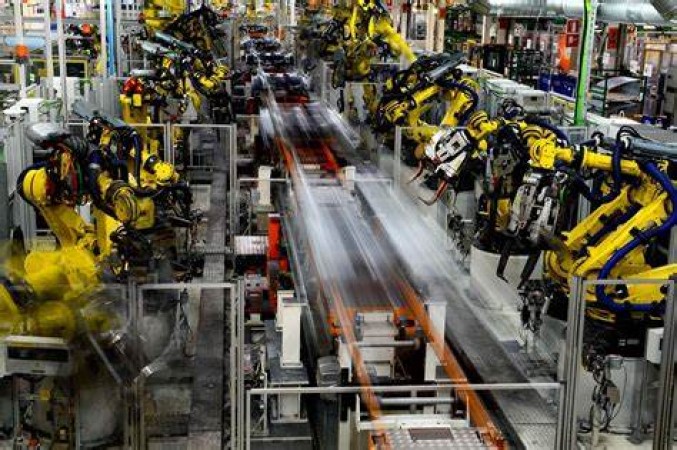
In recent years, the world has witnessed a remarkable transformation in various industries, driven by the advancements in robotics and automation technologies. These revolutionary technologies have not only enhanced productivity and efficiency but have also opened up new possibilities in areas previously deemed impossible. From manufacturing and healthcare to agriculture and transportation, robotics and automation have ushered in a new era of innovation, forever changing the way industries operate.
Understanding Robotics and Automation
Before diving into the impact of robotics and automation on different sectors, it's essential to understand what these terms mean. Robotics refers to the design, development, and application of robots to perform tasks autonomously or semi-autonomously. On the other hand, automation involves using technology to automate processes, eliminating the need for direct human intervention.
The Impact of Robotics and Automation on Manufacturing Industries
Increased Efficiency and Productivity
One of the most significant ways robotics and automation have revolutionized manufacturing industries is by boosting efficiency and productivity. Robots can perform repetitive and labor-intensive tasks with precision and speed, leading to a substantial increase in production rates.
Reduction in Human Error
Humans are prone to errors, especially when engaging in monotonous tasks for extended periods. With robots taking over these tasks, the chances of errors are significantly reduced, resulting in higher-quality products and cost savings.
Cost Savings and ROI
While the initial investment in robotics and automation can be significant, the long-term benefits outweigh the costs. Manufacturers experience reduced operational costs and quicker Return on Investment (ROI) due to the streamlined processes and reduced reliance on human labor.
Robotics and Automation in the Healthcare Sector
Surgical Robots
Robot-assisted surgeries have become increasingly prevalent in the healthcare industry. Surgeons can now perform complex procedures with more precision, leading to better patient outcomes, shorter recovery times, and fewer complications.
Automation in Pharmaceuticals
In pharmaceuticals, automation plays a crucial role in drug discovery, testing, and manufacturing. Automated systems enable researchers to process vast amounts of data efficiently, accelerating the drug development process.
Robotic Rehabilitation
Robotics is also transforming rehabilitation practices. Exoskeletons and robotic devices assist patients with mobility impairments, allowing them to regain strength and independence.
Robotics and Automation in Agriculture
Automated Farming Equipment
Automation has brought significant advancements to modern agriculture. Automated farming equipment, such as autonomous tractors and harvesters, improves crop yields and reduces the need for manual labor.
Drones in Agriculture
Drones equipped with various sensors are being used to monitor crop health, identify pest infestations, and even plant seeds with precision. This data-driven approach enhances crop management and resource allocation.
Precision Agriculture
By leveraging robotics and automation, precision agriculture optimizes farming practices by precisely tailoring irrigation, fertilization, and pesticide application based on real-time data and specific crop requirements.
Robotics and Automation in Transportation
Autonomous Vehicles
The automotive industry is undergoing a massive transformation with the development of self-driving cars. Autonomous vehicles have the potential to make transportation safer, more efficient, and accessible to all.
Drone Delivery Systems
Delivery drones are revolutionizing the logistics and transportation sectors. They offer fast and cost-effective delivery options for various goods, particularly in remote or challenging-to-reach locations.
Smart Traffic Management
Automation technologies are also being used to optimize traffic flow in cities, reducing congestion, and improving overall transportation efficiency.
Robotics and Automation in Retail
Automated Checkout Systems
Retailers are implementing automated checkout systems to streamline the shopping experience. Customers can now complete their purchases quickly and conveniently, leading to reduced waiting times.
Warehouse Automation
Automation in warehouses involves using robots to manage inventory, fulfill orders, and handle logistics efficiently, making the supply chain more agile and responsive.
Customer Service Bots
In the retail sector, customer service bots are being deployed to handle routine inquiries, resolve issues, and provide personalized assistance to shoppers.
The Challenges and Concerns of Robotics and Automation
While robotics and automation offer numerous benefits, they also pose certain challenges and concerns:
Job Displacement
The widespread adoption of robotics and automation may lead to job displacement in certain industries, causing disruptions to the workforce.
Security and Privacy Risks
As automation becomes more prevalent, the risk of cyberattacks and data breaches increases, necessitating robust security measures.
Ethical Considerations
As robots and AI become more sophisticated, ethical considerations arise, such as the moral implications of autonomous decision-making.
Embracing the Robotics and Automation Revolution
To make the most of the robotics and automation revolution, society must take proactive steps:
Reskilling and Upskilling the Workforce
Investing in reskilling and upskilling programs will help the workforce adapt to the changing job landscape and acquire skills relevant to the automated future.
Collaboration between Humans and Robots
Promoting collaboration between humans and robots is crucial to maximize productivity while ensuring human oversight and creativity are not compromised.
Adopting Ethical Guidelines
Developing and adhering to ethical guidelines for robotics and AI usage will address potential ethical dilemmas and ensure responsible deployment.
The robotics and automation revolution has undeniably transformed industries across the board. From manufacturing to healthcare, agriculture to transportation, and retail to logistics, these technologies have ushered in a new era of efficiency, productivity, and innovation. As we move forward, it is vital to embrace this revolution responsibly, making informed decisions to ensure a harmonious collaboration between humans and machines.
Secure Your Online Meetings: Learn How to Lock Video on Google Meet
Industry 4.0: The Fourth Industrial Revolution
WhatsApp Unveils Exciting Video Message Feature for Users Worldwide